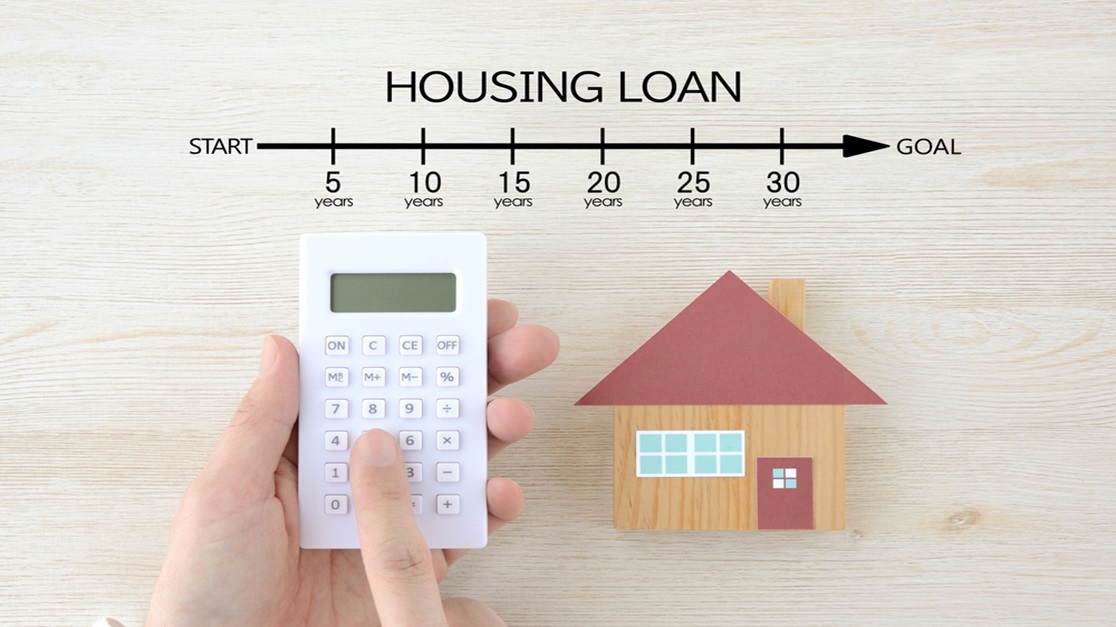Home Loan Financial Planning: Best Budgeting Tips and Loan Preparation Ideas
March 25, 2025

Applying for a home loan requires careful planning, especially when it comes to managing your finances. By adopting effective home loan financial planning strategies, you can ensure a smooth borrowing experience and stay on top of your budget.
In this article, we have shared valuable insights and practical tips on how to plan your finances before applying for a home loan. From creating a budget to understanding how to prepare for a loan, we have covered all the essential aspects so that you can make an informed decision.
9 Step Process for Sound Home Loan Financial Planning
Planning your finances before applying for a home loan in India is crucial to ensure a smooth application process and to enhance your chances of approval. Here are some essential steps for sound home loan financial planning:
1. Assess Your Financial Situation
Before applying for a home loan, it's important to assess your current financial situation. You can begin by assessing your total income, expenses, savings, and existing debts. This will give clarity on how much you can borrow and repay.
Example: Let's say your monthly income is ₹60,000, and your expenses amount to ₹40,000 per month. After deducting these expenses from your income, you have ₹20,000 left as surplus. This excess amount can be used to serve the Equated Monthly Installment (EMI) payments.
2. Create a Realistic Budget
Budgeting helps you allocate funds wisely and ensures that you have enough money for both loan repayments and daily expenses. Take into account all your monthly expenses such as utility bills, groceries, transportation costs, and EMIs while planning your budget.
Sample Calculation:
- Monthly Income: ₹60,000
- Monthly Expenses: ₹40,000
- Surplus: ₹20,000
Let's assume you want to keep 40% of your surplus for loan repayment. In this case, your monthly EMI should not exceed ₹8,000 (40% of ₹20,000).
3. Save for a Down Payment
Saving for a down payment is an essential part of home loan financial planning. It helps reduce the loan amount and lowers your EMIs. As a first step towards loan preparation, save at least 20% of the property value as a down payment.
4. Improve Your Credit Score
Your credit score plays a significant role in determining your eligibility for a home loan and the interest rate you'll be offered. A higher credit score indicates good financial health and increases your chances of loan approval with favourable terms. Any credit score above 750 is considered as a good credit score.
5. Pay Off Existing Debts
Another step towards home loan preparation is to pay off any existing debts such as credit card bills or personal loans. This not only improves your credit score but also reduces your debt-to-income ratio, making you more eligible for a higher loan amount.
Table: A Comparison of Home Loan Options
| Bank/Financial Institution | Interest Rate | Processing Fee | Prepayment Charges |
| Bank A | 7.50% | 0.5% | Nil (for floating rate home loans); 2% for fixed rate loans |
| Bank B | 7.75% | 1% | Nil (for floating rate home loans); 1% for fixed rate loans |
| Bank C | 8.00% | 2% | Nil (for floating rate home loans); 3% for fixed rate loans |
6. Consider Additional Costs
During the home loan preparation process, it's important to consider additional costs such as stamp duty, registration fees, property taxes, and insurance premiums. These expenses can add up significantly, so make sure to include them in your budget.
7. Seek Professional Advice
If you're new to the world of home loans or feel overwhelmed by the process, consider seeking professional advice from a financial advisor or mortgage broker.
8. Plan for Contingencies
It's always wise to plan for contingencies while preparing for a home loan. Unexpected circumstances such as job loss, medical emergencies, or changes in interest rates can impact your financial stability. Build an emergency fund that can cover at least six months' worth of expenses to mitigate any potential risks. You can open a separate Savings Account or Recurring Deposit to build corpus for emergency fund.
9. Read the Fine Print
Before you sign the loan agreement, you must first read and understand the terms and conditions put forth. Pay attention to interest rates, processing fees, prepayment charges, and any other relevant clauses. This will help you avoid any surprises in the future.
Final Thoughts
Planning your finances before applying for a home loan is essential for a smooth borrowing experience. By assessing your financial situation, careful loan preparation, and researching loan options, you can make informed decisions and manage your finances effectively.
Buying a house has never been this easy! Avail Ujjivan SFB’s wide range of affordable home loan products and enjoy a hassle-free loan journey. From house purchase loan to plot loans and home improvement loans, we have it all! Alternatively, you can browse through Ujjivan SFB product suite - our wide range of financial products are designed to make your financial life better.
Disclaimer:
The contents herein are only for informational purposes and generic in nature. The content does not amount to an offer, invitation or solicitation of any kind to buy or sell, and are not intended to create any legal rights or obligations. This information is subject to updation, completion, amendment and verification without notice. The contents herein are also subject to other product-specific terms and conditions, as well as any applicable third-party terms and conditions, for which Ujjivan Small Finance Bank assumes no responsibility or liability.
Nothing contained herein is intended to constitute financial, investment, legal, tax, or any other professional advice or opinion. Please obtain professional advice before making investment or any other decisions. Any investment decisions that may be made by the you shall be at your own sole discretion, independent analysis and evaluation of the risks involved. The use of any information set out in this document is entirely at the user’s own risk. Ujjivan Small Finance Bank Limited makes no representation or warranty, express or implied, as to the accuracy and completeness for any information herein. The Bank disclaims any and all liability for any loss or damage (direct, indirect, consequential, or otherwise) incurred by you due to use of or due to investment, product application decisions made by you on the basis of the contents herein. While the information is prepared in good faith from sources deemed reliable (including public sources), the Bank disclaims any liability with respect to accuracy of information or any error or omission or any loss or damage incurred by anyone in reliance on the contents herein, in any manner whatsoever.
To know more about Ujjivan Small Finance Bank Products Visit:"https://www.ujjivansfb.in"
All intellectual property rights, including copyrights, trademarks, and other proprietary rights, pertaining to the content and materials displayed herein, belong
to Ujjivan Small Finance Bank Limited or its licensors. Unauthorised use or misuse of any intellectual property, or other content displayed herein is strictly prohibited and the same is not intended for distribution to, or use by, any person in any jurisdiction where such distribution or use would (by reason of that person’s nationality, residence or otherwise) be contrary to law or registration or would subject Ujjivan Small Finance Bank Limited or its affiliates to any licensing or registration requirements.
FAQs
1. Should I seek professional help for budgeting tips?
You may seek professional help for budgeting tips, but remember it will come with a cost. If you are willing to pay, it could be a good idea to seek professional help.
2. What is the home loan financial planning steps I can take before approaching a banker?
Some of the home loan financial planning steps would include improving your credit score, researching lenders, seeking professional help and studying the fine print.
3. What is an LTV ratio in relation to a home loan?
The Loan-to-Value (LTV) ratio represents the maximum percentage of the property value that a lender is willing to finance through a home loan. LTV ratios typically range from 75% to 90%.
4. Can I get a home loan without a down payment?
While it's very rare, that you get a home loan without a down payment. However, it's advisable to have at least 20% of the property value as a down payment to avoid higher interest rates or additional charges.
5. What documents are required to apply for a home loan?
Commonly required documents include identity proof, address proof, income proof (like salary slips or bank statements), and property documents (like sale agreements).
6. Can I transfer my existing home loan to another lender for better terms?
Yes, you can consider transferring your home loan to another lender if you find better interest rates or terms.
7. Can I prepay my home loan?
Yes, most lenders allow prepayment of home loans either partially or in full. However, there might be prepayment charges applicable. Check your loan agreement or consult with your lender for more details.
8. Can NRIs apply for home loans in India?
Yes, NRIs can apply for home loans in India, but they may need to provide additional documentation and have certain restrictions.
9. How much can I borrow?
The borrowing capacity depends on various factors, including your income, expenses, credit history, and the lender's policies. Many lenders offer calculators to help estimate how much you can borrow.
Latest Blogs

ITR-1 (Sahaj) Restrictions: Income Sources Not Allowed & Filing Rules
With just a few days left before the 15 September 2025 deadline for filing Income Tax Returns (ITRs) for Assessment Year (AY) 2025-26, many taxpayers are rushing to submit their forms online.

GST Rate Cut on Electronics: What It Means for Consumers and Retailers
India’s Goods and Services Tax (GST) system has entered a new era with the rollout of GST 2.0, effective from September 22, 2025.

Banking Safety Guide: How to Avoid QR Code Frauds While Making Payments
India’s love for QR code payments has made transactions lightning-fast, but also opened a new front for cybercriminals.

Scam Alert! Phishing, Vishing, and Smishing Can Drain Out Your Finances
Digital banking in India has transformed the way we manage money.

India’s New GST Reform Bill: What GST 2.0 Means for You
India’s indirect tax system is entering a landmark new phase.





